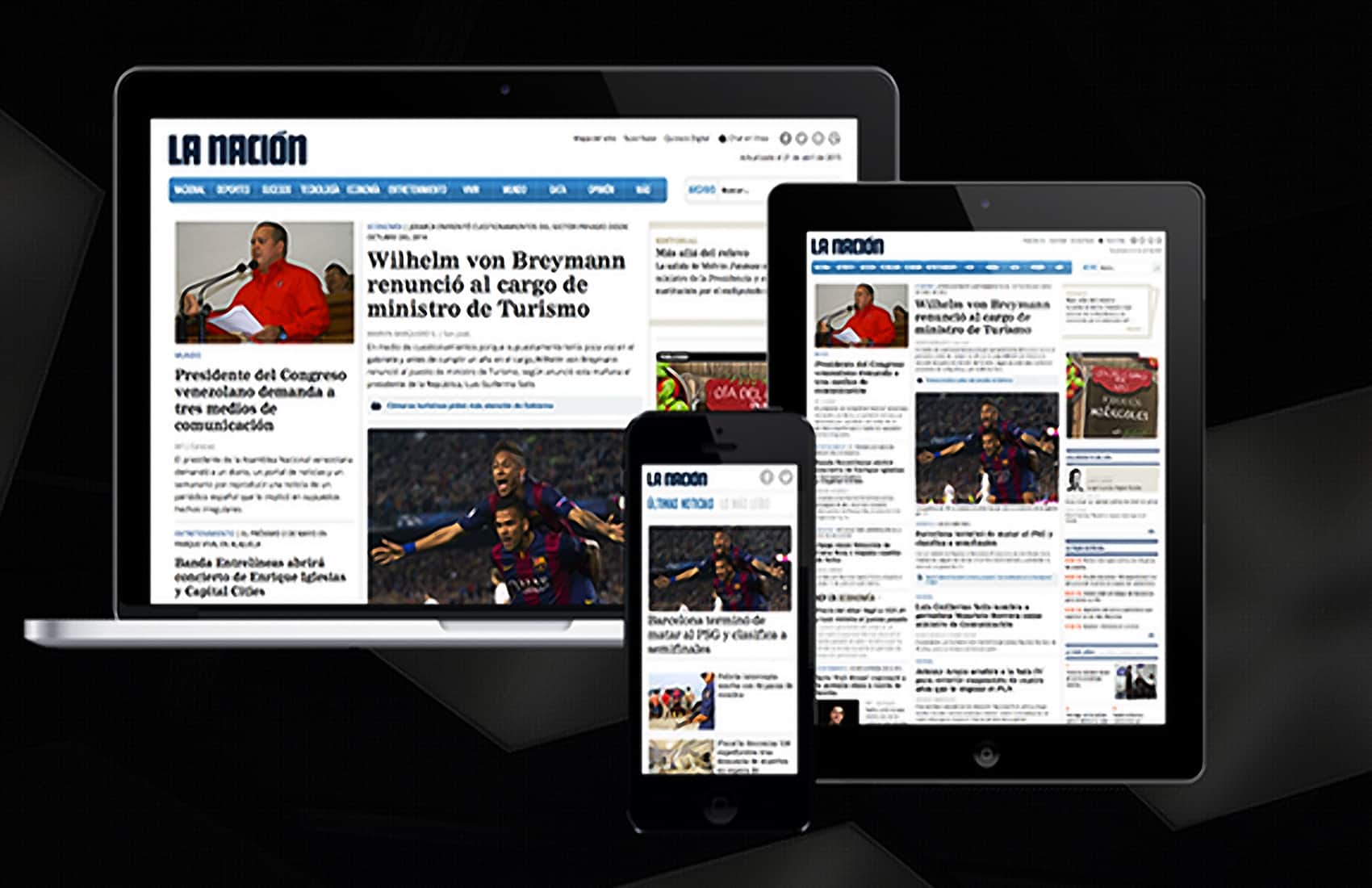Grupo Nación, one of Costa Rica’s largest media groups, on Tuesday announced it will begin charging for online content for the daily La Nación and the weekly El Financiero, two of its most popular media outlets.
The company will begin charging a monthly membership that allows unlimited access to the sites’ content. Subscriptions for either one of the papers is ₡3,000 ($5.50), which “also grants access to new applications for mobile devices,” La Nación reported. Subscribers to the print editions will have free access to online editions.
Both papers will offer free access to a limited number of articles per month. La Nación will allow visitors free access to 15 stories per month, and El Financiero will grant access to a maximum of five.
In a public statement, La Nación’s Editor-in-Chief Armando González said, “quality digital journalism requires investment, and in order to achieve it, online media must generate income, just as the world’s most important publications acknowledged when they launched their digital media subscription models years ago.”
A story published by both papers states that Grupo Nación is “following the path of other world media leaders such as The New York Times, The Wall Street Journal, Financial Times and the New Yorker, which already are charging for their online content.”
The debate over charging for access to news websites has been going on for years. Peter Marsh, an executive with U.S. technology company Newscycle, which specializes in providing software to media companies, added to the debate last year with an investigation.
Marsh polled 45 newspapers from the U.S. and other companies and found that nearly three out of four newspapers surveyed (73 percent) are currently charging readers to access online content, and almost 40 percent have set “hard” paywalls. The remaining 60 percent use a “soft” or metered paywall, at varying degrees.
González stressed that the decision is more than a business model: “What we are betting on here is the citizens’ appreciation of the concept of independent press, which without any pressure from economic influences, can fulfill its expected oversight role over governments and other political decision makers.”






